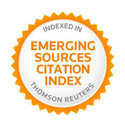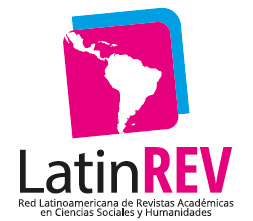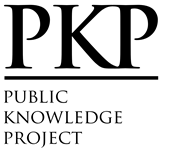Racial dynamics on Facebook
A study of right-wing political movements in Portugal
Abstract
Racialization is a process through which belonging to a particular race is socially constructed and attributed to certain individuals or human groups based on intrinsic characteristics, such as skin colour, ethno-cultural origin, or phenotype. This phenomenon, as a discriminatory mechanism, serves as the material basis for the spread and reaffirmation of prejudices, exclusions, favouritism, and hate speech, especially in the current era, where digital technologies amplify these polarizing political processes. Thus, this paper analyses the racialization present in right-wing political movements on Facebook, based on an update of a previous study. The analysis adopts a quantitative approach, involving the extraction, data mining, and visualization of data from two widely recognized fanpages in Portugal: Nova Portugalidade and Associação Portugueses Primeiro. The sample covers a period of 8 years, from January 1, 2017, to January 1, 2024, comprising a total of 3,740 posts. The results indicate a remarkable growth of the Portuguese nationalist movement on Facebook. However, compared to the original study, there seems to be a trend of decline or stabilization in this growth over the past three years. The former African colonies and their peoples are subjects of racial framing, frequently suffering direct hate attacks.
Downloads
References
Avraamidou, M. y Eftychiou, E. (2022). Migrant Racialization on Twitter during a border and a pandemic crisis. International Communication Gazette, 84(3), 227-251. https://doi.org/10.1177/17480485211054301.
Bartlett, J., Reffin, J., Rumball, N. y Sarah Williamson. (2014). Anti-social media. Demos. http://cilvektiesibas.org.lv/site/record/docs/2014/03/19/DEMOS_Anti-social_Media.pdf.
Berti, C. y Loner, E. (2023). Character assassination as a right-wing populist communication tactic on social media: The case of Matteo Salvini in Italy. New Media & Society, 25, 2939-2960. https://doi.org/10.1177/14614448211039222.
Boisard, S. (2020). Del totalitarismo al populismo: el enemigo antiliberal en el discurso de derecha. En: Pinto, A. C. y Gentile, F. (2020). Populismo: Teorias e casos (pp. 32-56). EdMeta.
Castells, M. (2009). The power of identity. Wiley-Blackwell.
Davis, S. y Straubhaar, J. (2020). Producing antipetismo: Media activism and the rise of the radical, nationalist right in contemporary Brazil. International Communication Gazette, 82, 82-100. https://doi.org/10.1177/1748048519880731.
Di Fátima, B. (2023). Hate speech on social media: A global approach. LabCom Books & EdiPUCE.
Di Fátima, B. (2024). Disinformation and polarization in the algorithmic society. Online Hate Speech Trilogy (Vol I). LabCom Books & Editorial Universidad Icesi.
Di Fátima, B. y Carvalheiro, J.R. (2024). One’s heaven can be another’s hell: A mixed analysis of Portuguese nationalist fanpages. Social Science, 13(1), 1-16. https://doi.org/10.3390/socsci13010029.
Duffy, M. E. (2003). Web of hate: A fantasy theme analysis of the rhetorical vision of hate groups online. Journal of Communication Inquiry, 27, 291-312. https://doi.org/10.1177/0196859903252850.
Eriksen, T. H. (2007). Nationalism and the Internet. Nations and Nationalism, 13(1), 1-17. https://doi.org/10.1111/j.1469-8129.2007.00273.x.
Fan, C. (2023). Understanding and citing CrowdTangle data. CrowdTangle. https://help.crowdtangle.com/en/articles/4558716-understanding-and-citing-crowdtangle-data.
Fan, L., Yu, H. y Gilliland, A. J. (2023). Aggravated anti-Asian hate since Covid-19 and the #stopasianhate movement: Connection, disjointness, and challenges. En: Di Fátima, B. (2023). Hate speech on social media: A global approach (pp. 35-74). LabCom Books & EdiPUCE.
Ferrugem, D. (2022). A racialização como estruturante da questão social: Entre silêncios e insurgências na produção de conhecimento em serviço social (Tese de Doutoramento). Pontifícia Universidade Católica do Rio Grande do Sul (PUCRS). https://tede2.pucrs.br/tede2/handle/tede/10518.
Fragoso, S., Recuero, R. y Amaral, R. (2011). Métodos de pesquisa para Interent. Editora Sulina.
Fuchs, C. (2020). Nationalism on the Internet: Critical theory and ideology in the age of social media and fake news. Routledge.
Gans, H. J. (2017). Racialization and racialization research. Ethnic and Racial Studies, 40(3), 341-352. https://doi.org/10.1080/01419870.2017.1238497.
Hervik, P. (2021). Racialization, racism, and antiracism in Danish social media platforms. En: Udupa, S., Gagliardone, I. y Hervik, P. (2021). Digital hate: The global conjuncture of extreme speech (pp. 131-145). Indiana University Press.
Hochman, A. (2018). Racialization: A defense of the concept. Ethnic and Racial Studies, 42(8), 1245-1262. https://doi.org/10.1080/01419870.2018.1527937.
Lajosi, K. y Nyíri, P. (2022). Introduction: The transnational circulation of digital nationalism. Nations and Nationalism, 28, 263-66. https://doi.org/10.1111/nana.12778.
Madeira, B. (2023). A direita radical portuguesa, o fim do império e as aspirações neocoloniais (1976-1980). Revista de História das Ideias, 41(2), 273-294. https://doi.org/10.14195/2183-8925_41_12.
Marchi, R. (2010). At the roots of the new right-wing extremism in Portugal: The National Action Movement (1985-1991). Totalitarian Movements and Political Religion, 11(1), 47-66. https://doi.org/10.1080/14690764.2010.499670.
Marchi, R. (2016). À direita da direita: O desafio da extrema-direita à democracia portuguesa. En: Marchi, R. (2016). As direitas na democracia portuguesa: Origens, percursos, mudanças e novos desafios (pp. 219-49). Texto.
Marchi, R. (2023). Political mobilisation amongst the new and old radical right in democratic Portugal. En: Kondor, K. y Littler, M. (2023). The Routledge handbook of far-right extremism in Europe (pp. 117-128). Routledge.
Meta. (2024). CrowdTangle. Transparency Center. https://transparency.meta.com/pt-br/researchtools/other-datasets/crowdtangle/.
Mihelj, S. y Jiménez-Martínez, C. (2021). Digital nationalism: Understanding the role of digital media in the rise of ‘new’ nationalism. Nations and Nationalism, 27(2), 331-346. https://doi.org/10.1111/nana.12685.
Miranda, S., Malini, F., Di Fátima, B. y Cruz, J. (2022). I love to hate! The racist hate speech in social media. Paper presented at 9thEuropean Conference on Social Media, Krakow, Poland, May 12-13.
Omi, M. y Winant, H. (2015). Racial formation in the United States. Routledge.
Parlamento Europeo. (2016). Reglamento General de Protección de Datos (2016/679). https://eur-lex.europa.eu/ES/legal-content/summary/general-data-protection-regulation-gdpr.html.
Smith, A. (1997). A identidade nacional. Gradiva.
Zúquete, J. P. (2020). Para além do populismo: A defesa da identidade branca na Europa Ocidental. En: Pinto, A. C. y Gentile, F. (2020). Populismo: Teorias e casos (pp. 57-75). EdMeta.
Copyright (c) 2025 Branco Di Fátima, José Ricardo Carvalheiro

This work is licensed under a Creative Commons Attribution-NonCommercial-ShareAlike 4.0 International License.
The authors retain the copyright and guarantee the journal the right to be the first publication of the work. In case that a translation of the article already published in Austral Comunicación can be published in another journal, it is requested to record the original publication in the translated version.
The license used is CC BY-NC-SA, which allows sharing (copying and redistributing the material in any medium and format) and adapting (remixing, transforming and building on the material) under the following terms: attribution (acknowledge authorship) and non-commercial (the material cannot be used for commercial purposes). Update: February 1, 2022.
Austral Comunicación allows the author (s) to retain the publication rights without restrictions.











































